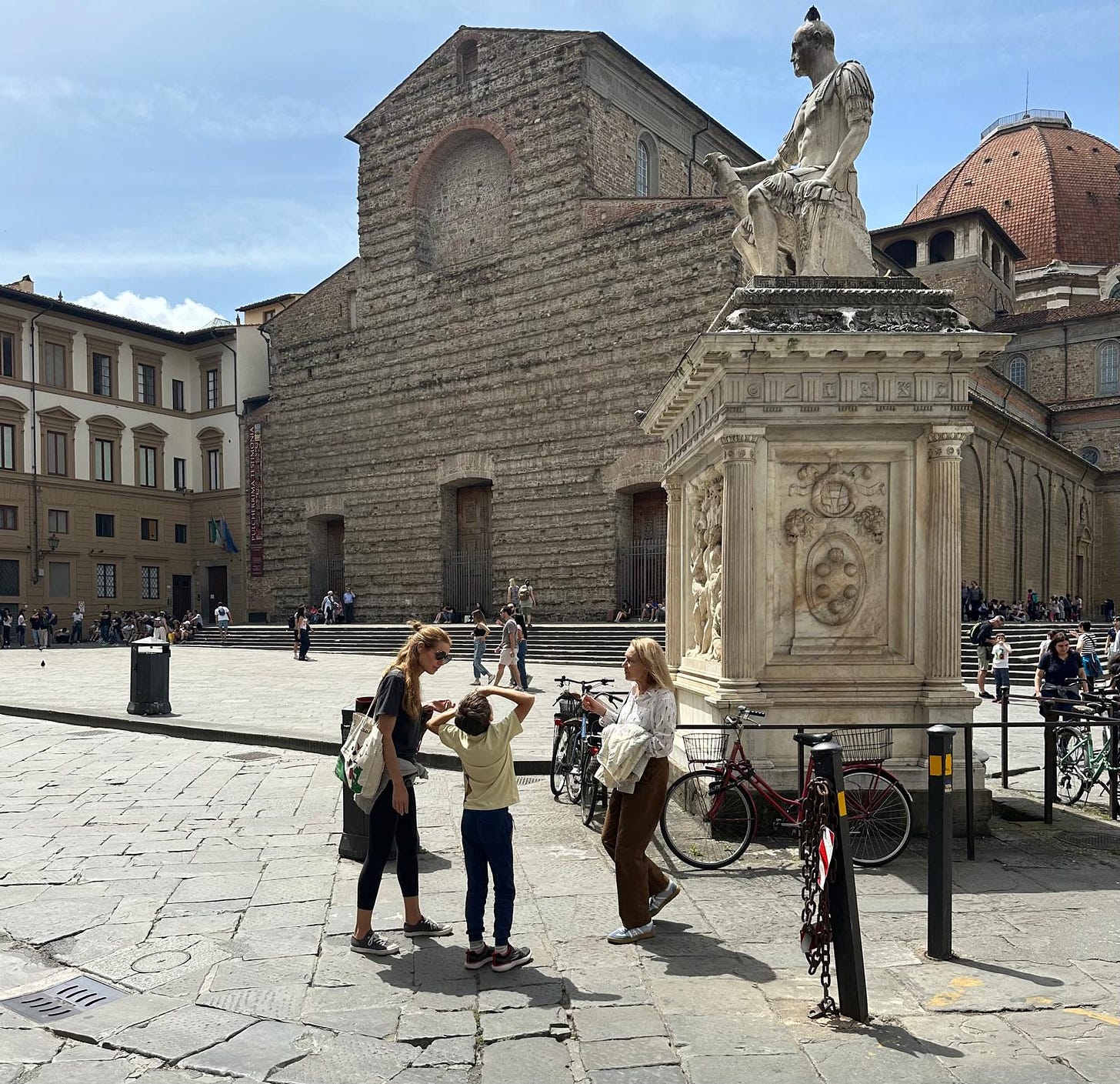Who said it was meant to be easy?
A reframe on mothering. Also: a video about the reality of travelling with kids & more on our current move back to the US.
My second child entered this world like a whirlwind.
He would not be put down. He didn’t love to nap during the day. He moved constantly, and wanted to sleep close to me, always. Even as a
toddler, he wouldn’t play on his own - ever. I had to be with him on the floor, even if I was just sitting there watching. The minute I got up, he started to whine or chase after me.
It was a lot.
I decided that I just hadn’t found the activity or toy that would capture his attention long enough, reliably enough, that I could just have a few minutes to myself.
I thrifted toys, bought them on online and in local shops and borrowed from friends. Nothing. He would be interested initially, but then when he realised I was no longer around, he’d come looking.
I was trying to find a toy that would substitute me. Now that I frame it like this, it sounds a little messed up. But in my post-partum brain, I was simply desperate. I needed time to spend with my first child, and I needed space for myself.
And because I existed in capitalism, I decided the answer was to find the right sort of material possession that would adequately replace me, even for just an hour a day.
After all, we are literally marketed products this way: buy this toy, and your child will be forever entertained! buy this cot and your baby will sleep soundly! buy this bizarre spoon and your toddler will eat all their food!
There is a literal price for a sense of ease and fulfilment, we are told.
The story of ease and comfort that mothers are sold makes me extremely uncomfortable.
We are told that mothering is natural - that all of the things we do as mothers are somehow deeply embedded within us already. The result of this is that we spin a narrative that tells women that carework is somehow supposed to be easier for us because of something innate within us.
As Silvia Federici writes, “Housework was transformed into a natural attribute, rather than being recognized as work, because it was destines to be unwaged.” We could say the same about caring for children.
Not only is this framing false, with no scientific basis whatsoever, but it is also unhelpful; it devalues how effortful care work and mothering and domestic work actually is - how effortful, but also how potentially boring, soul-destroying, thankless it can be for some of us.
This narrative also spins mothering as a search for ease. Because we feel that since it’s supposed to be natural, then it should also be easy. And since we’re not being paid for it, we deserve for it to be easy.
I’m not arguing that no mothers anywhere feel ease in mothering. If that is you, I truly celebrate you. That is so great for you.
If you are a parent and carer that finds effortlessness in carework, that is wonderful.
But I think we need to be more honest when we talk about ease - not only in mothering but in general.
I think we need to recognise that it’s entirely unhelpful to expect it to be easy or easeful, in any way whatsoever.
But first, let me define mothering, lest you think that I am only referring to mothers.





